The audit including five SAIs coordinated by the State Audit Office of Hungary focusing on the sustainability of water and wastewater management has been completed. Besides the SAO of Hungary, the State Audit Office of the Republic of Croatia, the Supreme Audit Office of the Republic of Poland, the State Audit Institution of the Republic of Serbia and the Accounting Chamber of Ukraine also took part in the audit. The need for the coordinated audit was justified by the scientific evidence that the world’s water resources are dwindling, their preservation is extremely important for humanity and the state has a fundamental role in ensuring the economical and efficient utilisation of existing water resources.
The present challenge is global and solving the problem of drinking water shortage requires the joint efforts of all countries and the whole international community. Upon the recognition of these, the concerning five SAIs decided to participate in an international coordinated audit focusing on the availability and sustainability of water and wastewater treatment related to the UN’s sustainable development goals under the coordination of the SAO of Hungary.
The SAO of Hungary pays special attention to the audit of topics related to sustainability affecting major part of the population, therefore took an initiative role in conducting the coordinated audit. Participating SAIs developed a joint audit framework, which included the main audit questions and the related criteria to be taken into account during national audits. On the basis of this, the institutions searched for answers to questions such as, among other things, what strategies were developed and what results were achieved by the responsible national institutions, as well as whether the set goals were realised and the financial and human resources were available for the achievement of the concerning goals.
The conclusions of the joint report show that the participating countries – in their previously published respective national reports – highlighted similar problems to those found by the SAO of Hungary. On the basis of the audits, the participating SAIs found that the sectoral strategies are in line with the international goals for drinking water supply and wastewater, however the achievement of the strategic goals is hampered by the lack of overall coordination at a strategic level and the absence of integrated databases to support decision-making processes.
The already known fact was also among the common findings that in the domestic environment, the reasons for the significant water loss are derived from the deterioration of equipments and the lack of reconstruction, of which primary causes, are the obsolescence and aging of the piped water networks. The countries have shown improved performance in terms of the safe treatment of wastewater, however at the same time, the water quality of water bodies has not shown significant progress everywhere in recent years.
In the report, SAIs formulated joint recommendations: they called for improving coordination, the clear definition of the roles and responsibilities of public bodies, the establishment of integrated databases and information systems and putting emphasis on investments in the maintenance and modernization of infrastructure. SAIs considered raising the awareness of water users and consumers to be of particular importance, the aim of which, is to widen knowledge on the rational utilisation of water and the reduction of wastewater pollution.
The joint report of the participating five SAIs can be read here in English.
During the coordinated audit, in addition to previous communications containing the findings of the SAO of Hungary in detail, the related national report and analysis are also available (in Hungarian).

